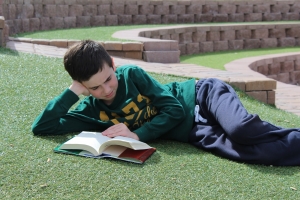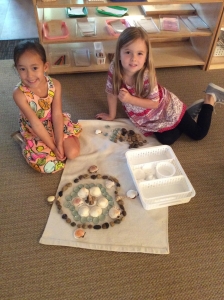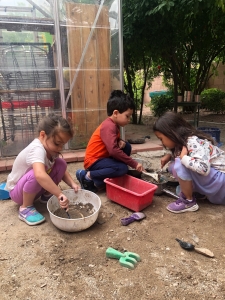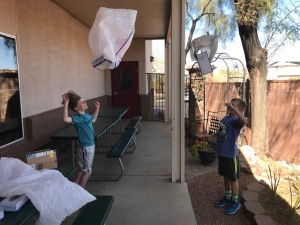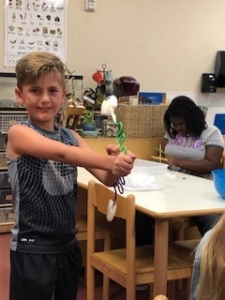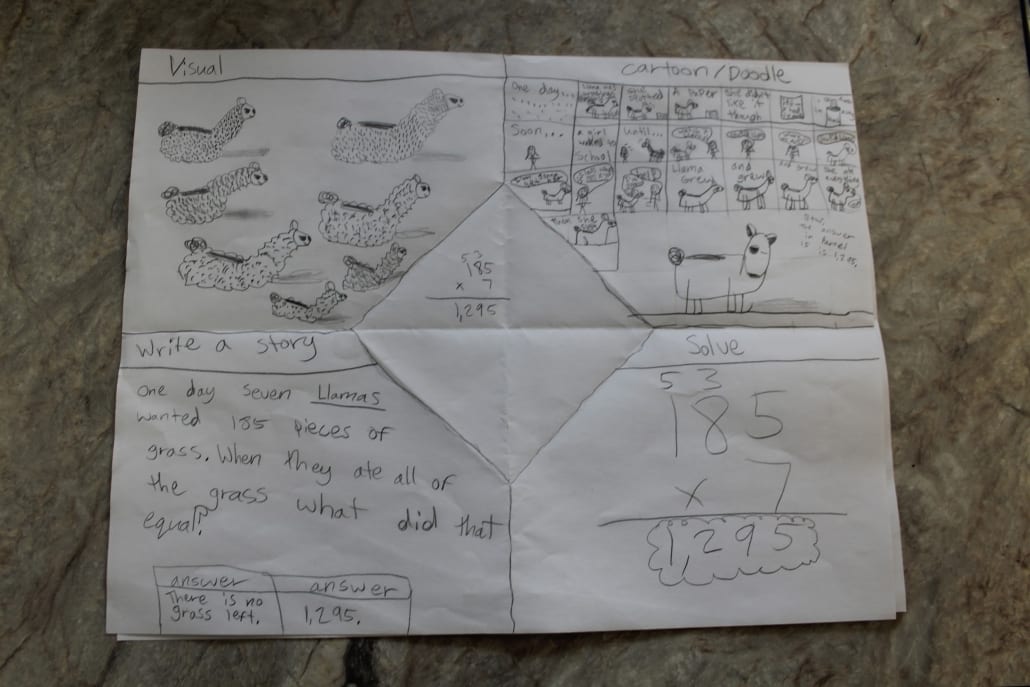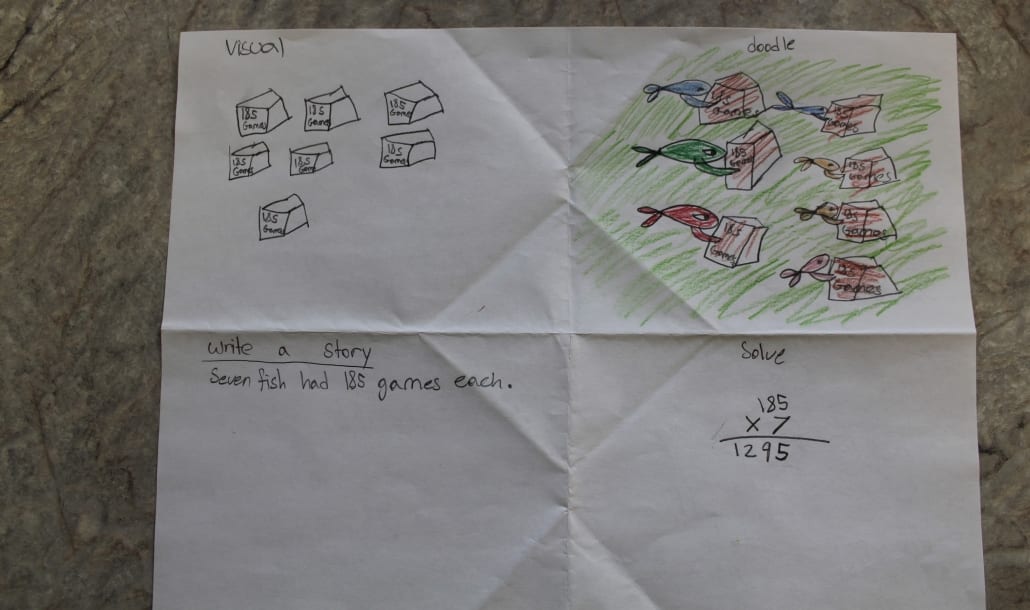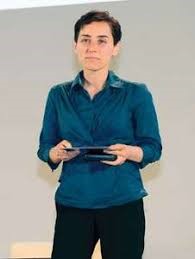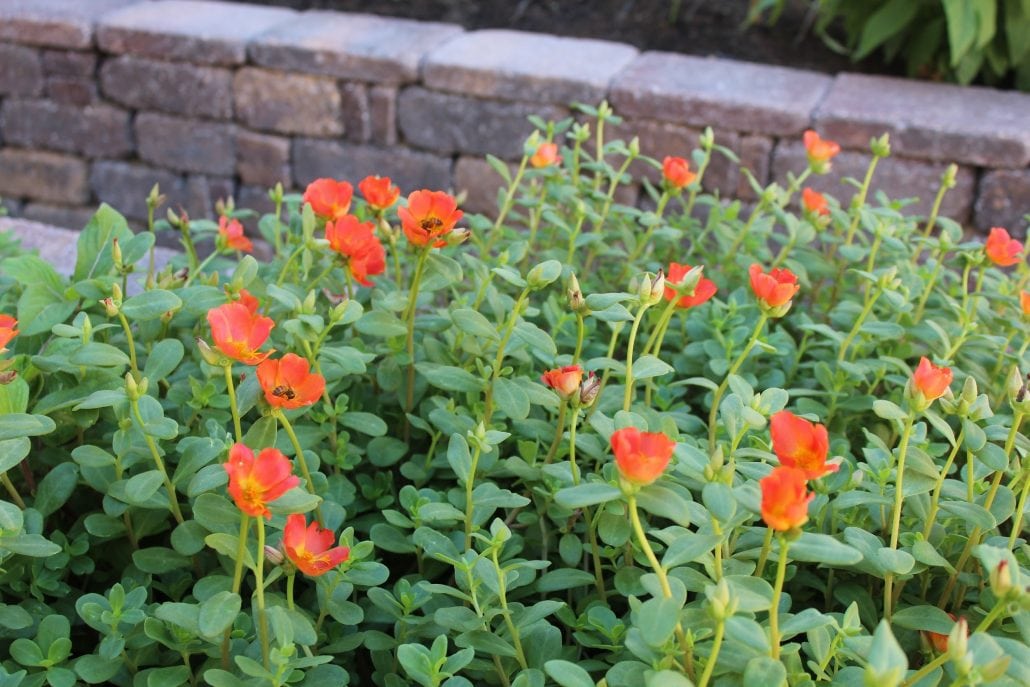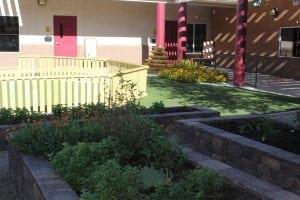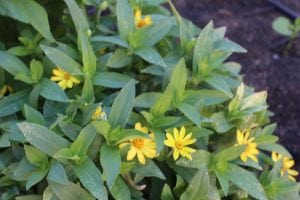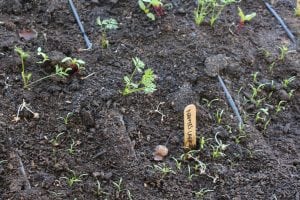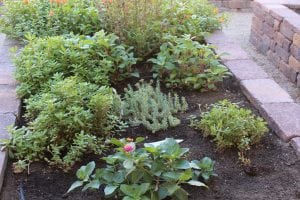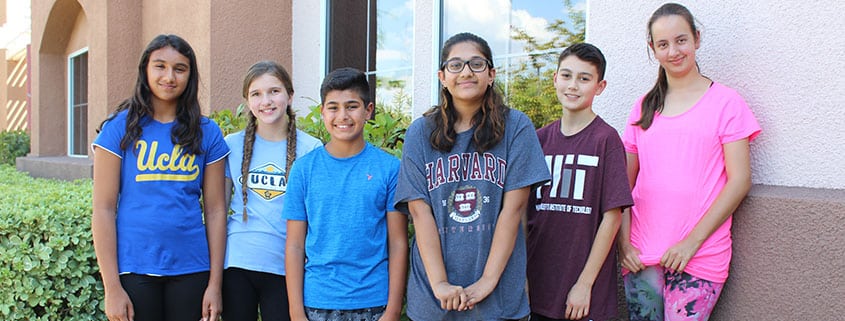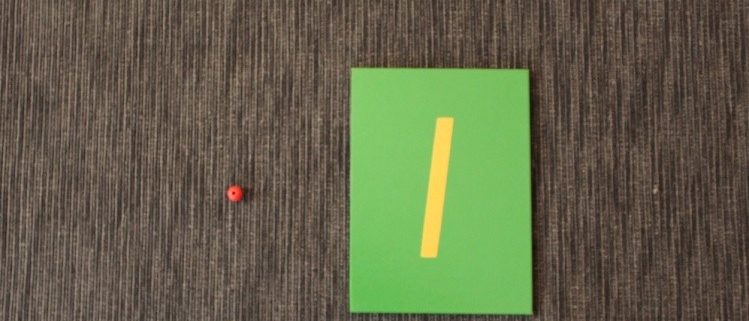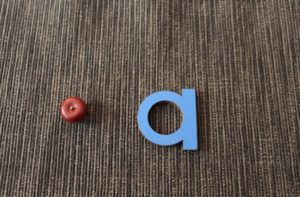Mindfulness
Ms. Erica introduced the practice of mindfulness to her middle school students in January 2018. Currently, students are given a 15-minute daily window to practice guided meditation, breathing techniques, or simply sitting quietly. Then once or twice a week, students are engaged with individual works from the mindfulness shelves. The methodology and resourcefulness of materials have evolved every year.
Over 80 different mindfulness works are available on the shelves, quietly creating a lasting impression on the students that there are many paths to creating quiet of mind. Even when students are not actively engaged in using the materials, a quick glance to the shelves is a reminder for the students that all the tools they use are simply tapping into an awareness that is always available to them.
One of the biggest developments in the program this year was the introduction of snails to the classroom. Two large terrariums house the variety of snails in their classroom homes. Some are small and some are not so small, everyone of them is curious and sweet. Once a hand is sprayed with water and the snail is placed on the palm, the snail’s four antennas begin to come out and the snail begins to move slowly. Snails have limited sight from their pair of eyes and no sense of hearing but are equipped with a highly developed sense of smell. The process of holding a snail naturally slows the mind and clams emotions. Truly engaged in a “snail’s pace,” the person holding the snail reflects a calm, slowed mental rhythm. A new bulletin board featuring “Lessons of the Snail” will be available to the students to reflect upon the many life lessons learned from our invertebrate friends.
Ms. Erica’s scientific approach to the subject of mindfulness includes doing an extensive classroom survey of her students to determine how effective her techniques and processes are working. The survey results were very positive in every area of her inquiry. Several former FMS graduates have also reported the mindfulness tools and practices that they learned from being in her class have really stuck with them and provided them access to their own quiet of mind in whatever environment they find themselves in.





















